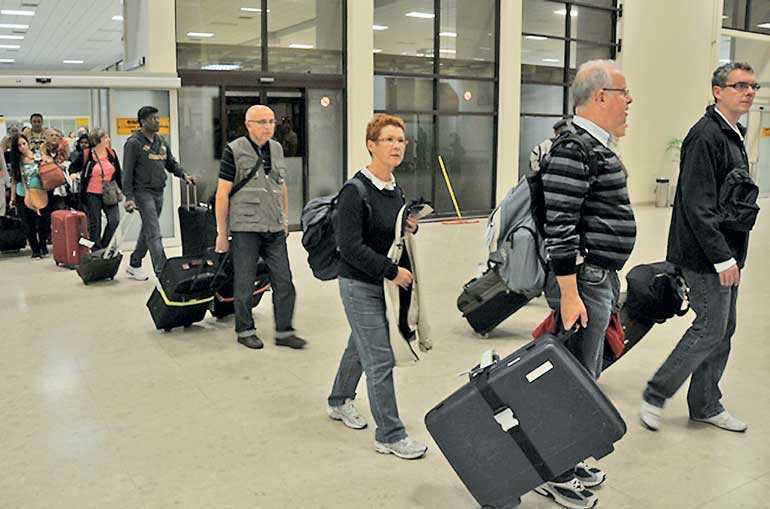Thursday Feb 26, 2026
Thursday Feb 26, 2026
Monday, 12 February 2018 00:00 - - {{hitsCtrl.values.hits}}

Preliminary traffic figures from the Association of Asia Pacific Airlines (AAPA) for the full calendar year 2017 show that both international air passenger and air cargo markets enjoyed robust growth, underpinned by an acceleration in economic activity across most regions.
Supported by elevated business and consumer confidence levels, the region’s airlines carried a combined total of 316.8 million international passengers for the year, a solid 6.2% increase compared to 2016. Demand as measured in revenue passenger kilometres (RPK) increased by 8.2%, reflecting relative strength on long haul routes.
Meanwhile, traffic demand within the region remained encouraging, supported by sustained regional economic growth. The average international passenger load factor rose by 1.2 percentage points to reach 79.9% for the year, after accounting for a 6.6% expansion in available seat capacity.
Broad based expansions in new orders precipitated by greater client demand helped boost trade activity significantly, following years of tepid performance. Correspondingly, international air cargo demand for the region’s airlines registered its fastest full year growth since the post-crisis rebound in 2010. In freight tonne kilometres (FTK) terms, demand rebounded with a strong 9.8% growth for the year, following a modest increase in 2016. Growth in demand outpaced the 4.4% expansion in offered freight capacity by a considerable margin, lifting the average international freight load factor by 3.2 percentage points to 65.2% for the year. AAPA Director General Andrew Herdman said: “Whilst competition remained intense, continued availability of affordable air fares and further expansion of routes, amid a positive global economic environment, culminated in a year of firm traffic growth for air passenger markets.
In addition, Asian airlines enjoyed solid increases in air cargo volumes through the year, with continued improvements in business conditions boosting trade activity as demand was transmitted through regional supply chains. Overall, the region’s carriers in 2017 benefitted from the robust growth in demand, at the same time, notably higher load factors provided some relief to airline yields. However, increased cost pressures, particularly significantly higher jet fuel prices, in addition to continued market competition, constrained margins.”
Looking ahead, Herdman concluded: “The outlook for the year ahead is broadly positive, as the increase in new orders and recent pick-up in business investments are expected to enhance the sustainability of the global economic upswing. This will in turn lend support to air travel demand in the coming months. Nevertheless, market conditions remain highly competitive. As such, airlines are consistently pursuing new sources of additional revenue whilst keeping a tight rein on costs, to support ongoing investments in future growth opportunities.”